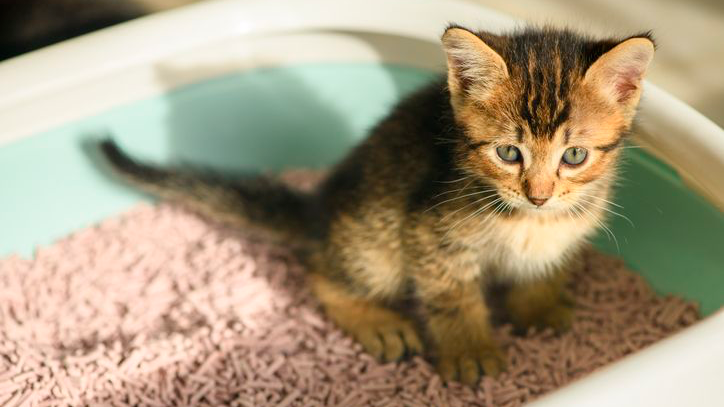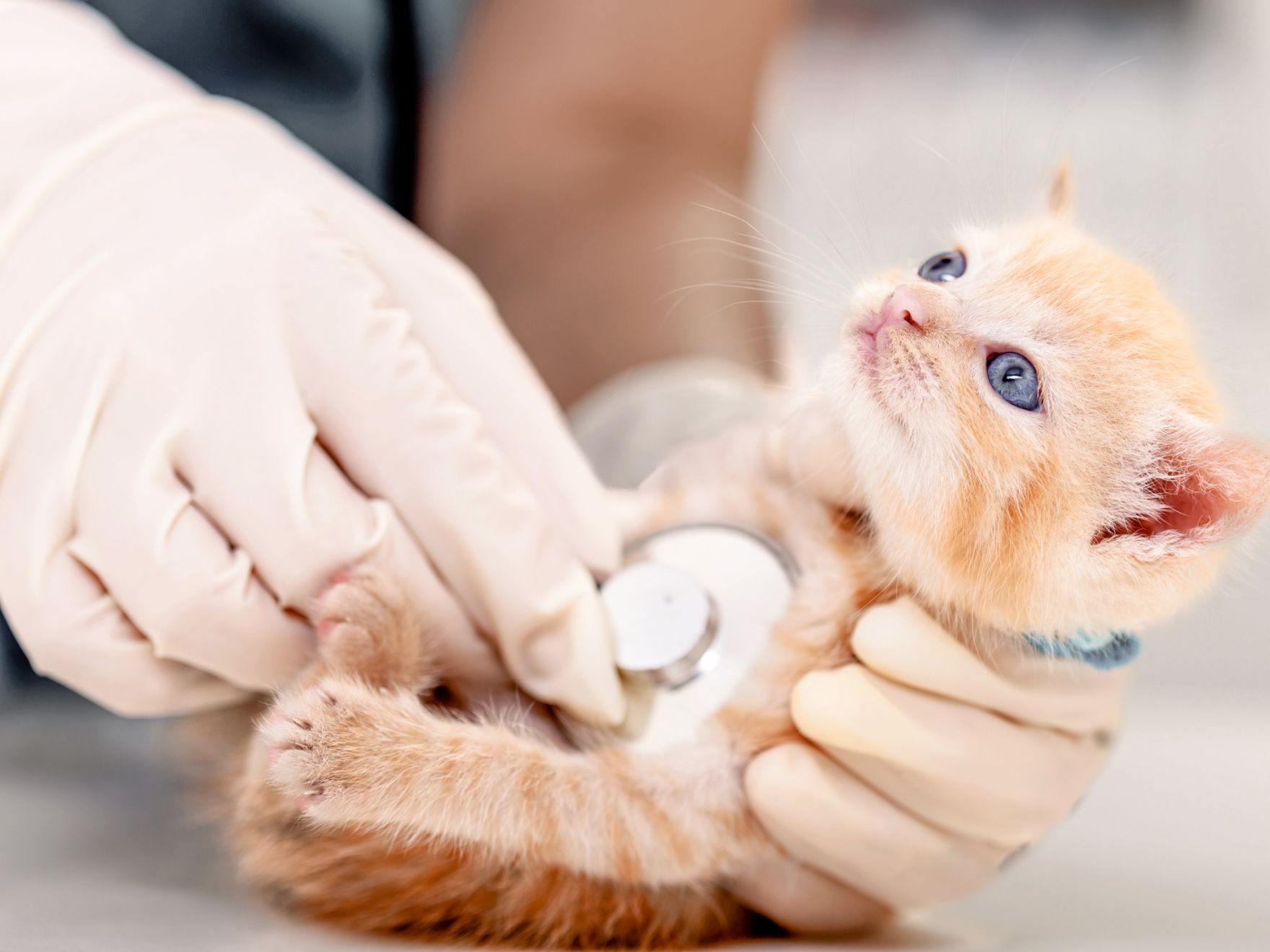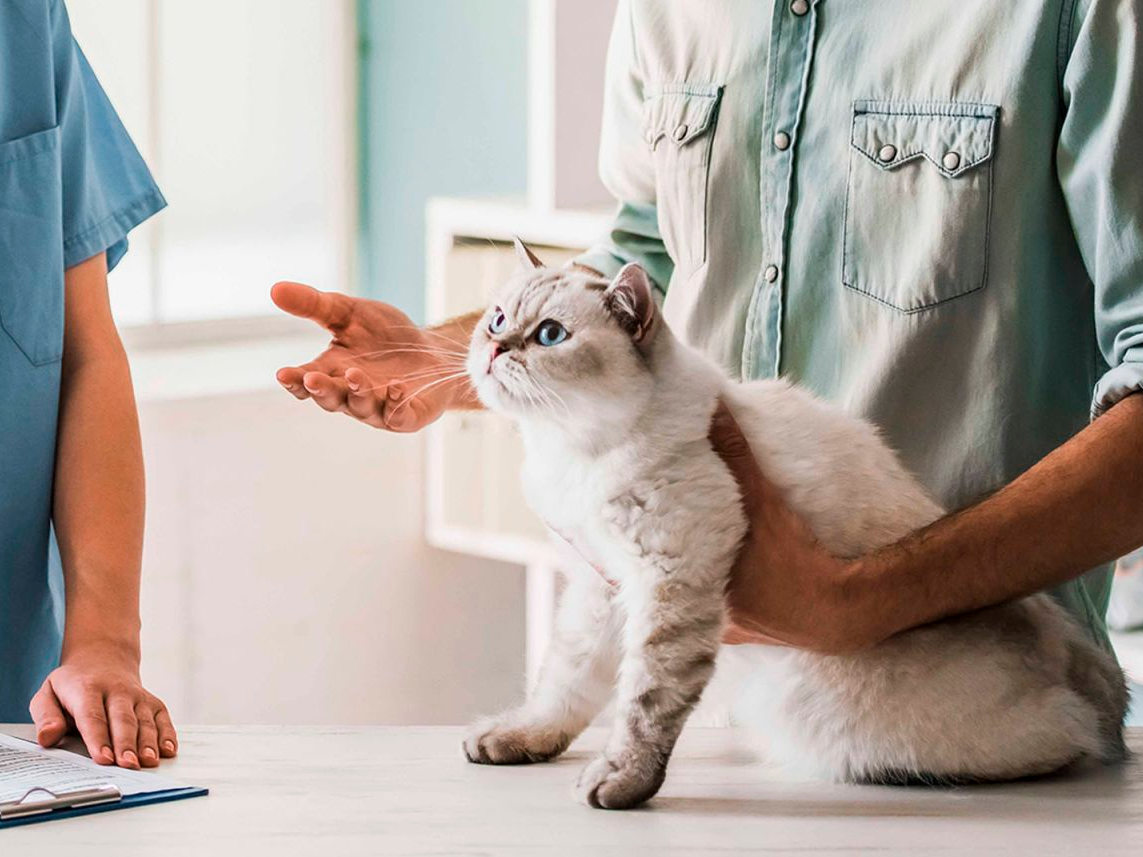When and how to deworm a kitten
Worms and intestinal parasites are common in kittens, so it's wise to familiarize yourself with what to watch for and what your management options are beforehand.
Here’s the essential information you need to help prevent worm infestations in your kitten, and how to deworm them if they occur.
Article

How do kittens get worms?
Kittens have many opportunities to get worms in their daily lives. They can contract worms from eggs transmitted through their mother’s milk or from her feces in the litter box. Contaminated areas such as soil, an infected cat’s fur, or even their bedding can also harbor worm eggs. There might be larvae clinging to their paws from the litter box or from roaming in your yard, which can be easily ingested during grooming.
Your kitten can also pick up worms in other ways:
- Grooming: Cats and kittens groom each other, potentially ingesting fecal matter present on fur during mutual grooming sessions.
- Hunting: Worm eggs and larvae can reside in the muscle tissue and intestines of intermediate hosts if your kitten hunts or encounters them outdoors. If they ingest prey, eggs and larvae can infect your kitten.
- Pests: Fleas and ticks also harbor worm eggs. If your kitten swallows a flea, the eggs enter their gastrointestinal (GI) tract, where they mature and may cause issues.
- Contagion: Many worms are zoonotic, capable of spreading between humans and animals.

Signs your kitten has worms?
The most common signs that your kitten has worms include:
- Weight loss
- Slow growth
- Diarrhea that may contain blood
- Vomiting
- Coughing or hacking with no hairball
- A pot belly
- Appetite loss
- Lethargy
- Worms or worm segments in your kitten’s in their stools
Anytime you notice those symptoms, it’s time to visit the vet for a health check.
Most common worms found in kittens?
Roundworms are lengthy parasites that enter kittens as eggs and mature in the intestines. Kittens can acquire them from their mother’s milk, by ingesting the feces of an infected cat, or by handling or consuming an infected secondary host such as a bird, mouse, or insect. You may also notice worms or segments resembling seeds or grains of rice in your kitten’s stool.
Symptoms of roundworms include:
- Lethargy
- Swollen abdomen
- Vomiting
- Diarrhea
- Stunted growth
- Loss of appetite
- Weight loss
A fecal test can confirm the presence of roundworms. Treatment involves a broad-spectrum deworming medication prescribed by your veterinarian.
Roundworms can be transmitted among animals and can also affect humans.
Hookworms can be passed from the mother cat through the placenta or while nursing. Later on, they can spread through contaminated feces. Hookworms attach to the intestinal lining, feeding on your kitten’s blood and competing for essential nutrients needed for growth and development. A severe infestation can lead to significant anemia and pose a life-threatening risk to your kitten.
The eggs and segments can adhere to fur and paws in contaminated environments, potentially being swallowed during grooming. Hookworms can also be detected through fecal tests. Treatment involves a broad-spectrum deworming medication prescribed by a veterinarian, but this only eliminates adult hookworms.
Humans can accidentally ingest hookworm eggs or larvae by handling an infected cat’s feces or by coming into contact with grass frequented by infected animals. The worms can enter your system if you touch your face or neglect handwashing.
Tapeworms are flat, elongated parasites with multiple segments, each containing its own reproductive organs and housing eggs. Fleas, birds, and rodents ingest these worm eggs, becoming carriers themselves.
If your kitten consumes one of these carriers, the eggs transfer to your kitten where they hatch and establish themselves in the intestines.
Also, if your kitten ingests a flea (or a bird or rodent) carrying tapeworm eggs, the eggs enter their gastrointestinal tract, developing into adult tapeworms. Once inside, tapeworms attach to your kitten’s intestines, feeding on blood and nutrients crucial for healthy development.
You may spot tapeworm segments in your kitten’s stool, resembling pieces of string or long grains of rice. They may also appear on the fur around the tail or in areas where your kitten sleeps. Tapeworms can cause itching around the anus, prompting your kitten to scoot across the floor to alleviate discomfort.
Fecal tests can detect tapeworms. Treatment involves a prescription tablet or injection administered by your veterinarian.
Humans can also contract tapeworms from consuming contaminated meats or accidentally ingesting fleas or larvae from their environment.
When to deworm kittens
Kittens can begin the deworming schedule at around two to three weeks of age. This recommendation differs by country. Your veterinarian is your best resource for determining your kitten’s schedule. It will also be based on your kitten’s age, size, health and lifestyle.
Most breeders start deworming before kittens leave for their new homes. If your kitten did not receive deworming medication, schedule a vet appointment to begin the deworming process.

How to deworm kittens?
Most cats will end up with worms at some point. Regular tests and a deworming schedule are the best prevention methods for your kitten.
However, many people misunderstand the deworming medication’s capabilities. The medication kills any adult worms present in your kitten’s GI tract at the time of deworming. It won’t prevent a reinfestation in the future. If a flea gets inside your house and your kitten swallows it while grooming, they will become reinfected with worms.
The best preventative measures to keep worms at bay are:
- Maintain a regular deworming schedule supervised by your vet
- Keep your kitten’s immunizations current
- Clean their litter box daily and check your yard as well.
- Limit nighttime outings
- Don’t allow your kitten to eat prey
- Apply flea and tick treatments regularly, especially during the summer or warmer months

When to get rid of worms in kittens?
After a fecal test determines the worms present in your kitten, your vet will prescribe the right medicine for your kitten so you can get rid of them as soon as possible. Don’t hesitate to ask for instruction on administering the treatment.
There are different formats for your kitten’s deworming medicine:
- Tablets
- Treats
- Paste to be given orally
- Drops
- Injection
Your veterinarian will take into account your kitten’s age, weight, and if they have any health issues when prescribing which type of medication is appropriate.

What happens after you deworm your kitten?
Once your kitten has taken their medicine, you may start to see dead worms appear in their stools, which can take weeks until fully resolved.
When your kitten takes a deworming medicine, the medicine kills all the worms at once. This can cause intestinal inflammation and discomfort depending on the amount of worms present. This resolves itself in a day or two and is common. A large infestation can cause an intestinal blockage, which can be life-threatening.
Always talk to your vet if you have concerns or if your kitten is uncomfortable.
Related articles

Taking care of your kitten's health

How to give a cat a pill with Pill Assist™
Like & share this page